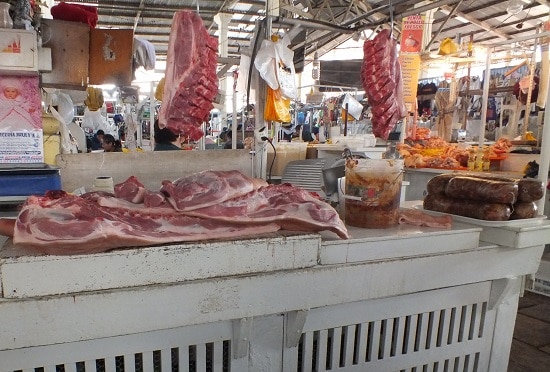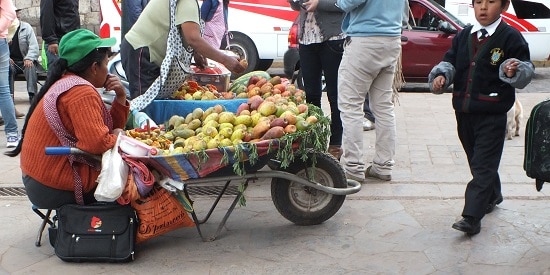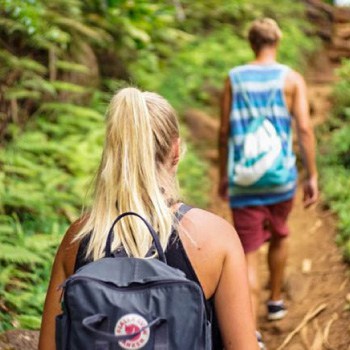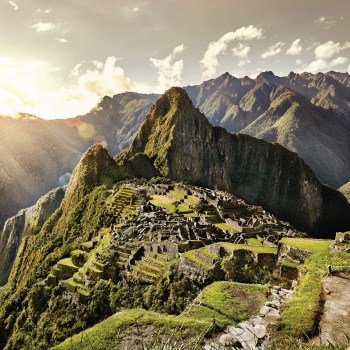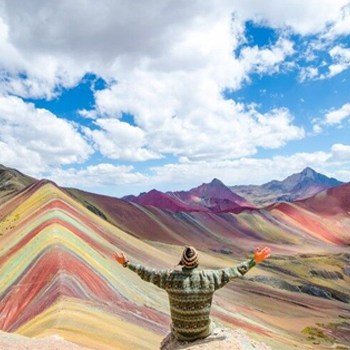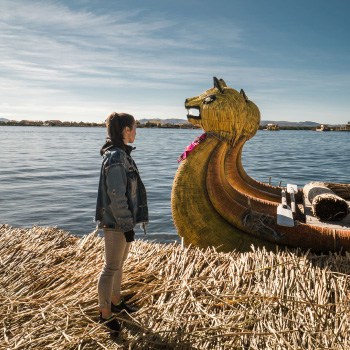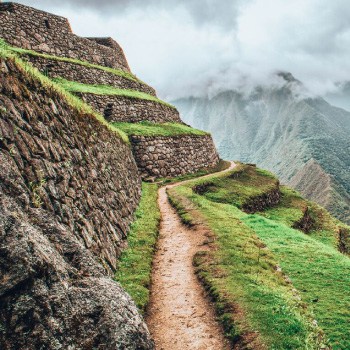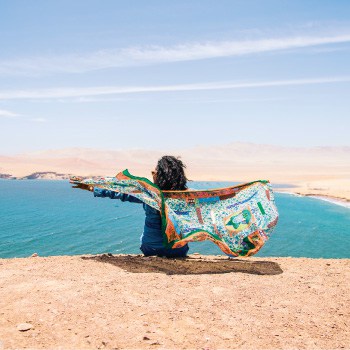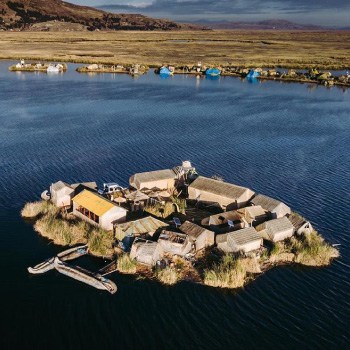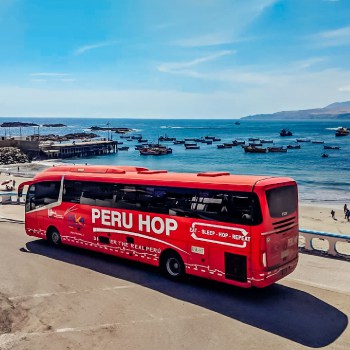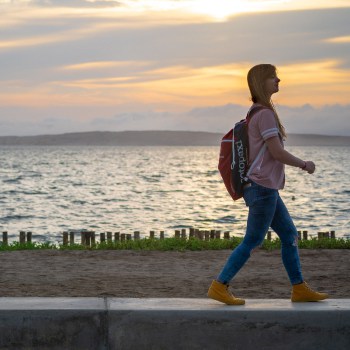Altitude
As you move inland in Peru and make your way towards Cusco one thing you´ll notice is the lack of oxygen! We are now 11,154 ft. or 3,400m above sea level. Our body requires oxygen to carry out basic bodily functions like heart function, brain function and also break down food. However, our heart and other internal organs need the oxygen ahead of our intestines. Higher altitudes can lead to a loss of appetite in some people. Even if you don’t feel hungry it’s really important to eat to ensure you keep your energy levels up and to avoid getting ill. Generally at high altitude a high carb diet is better than a protein-rich or fatty diet. Fat requires more oxygen for the body to break down. Ensure you are eating enough fibre to help keep your bowels regular. If you’re here to trek to Machu Picchu, which I’m sure you are, try not to eat heavy meals in the hours before climbing. It’s important to let the body focus on getting oxygen to the working muscles rather than digesting your meal! Be sure to drink plenty of bottled water to keep hydrated and avoid getting ill in Peru.
Diarrhea
We all have diarrhea stories! They always seem to be funny in the retelling but we all know how horrible, uncomfortable and stressful it is when you’re suffering from it. We’re all bound to experience it in some shape or form while traveling. You’ll also notice it’s a very common topic of conversations among other travelers. The most common is traveler’s diarrhea. It’s caused generally by bacteria such as e.coli, shigella or salmonella and results in watery diarrhea and sometimes vomiting. It’s treated with rehydration and if persistent with antibiotics. On the more severe end of the spectrum there are Giardia and Dysentery. These require serious medical attention. The main cause of getting ill in Peru is food and drink. But we have to eat, right? So what can the traveler do to avoid getting ill in Peru?
Why Does the Food Make Us Ill?
Firstly we think to think about where the food has actually come from. Who has handled it? What has it been transported in? How long has it been sitting out? We need to remember that we are in South America, things are done differently here! Hygiene just isn’t the same with locals here as back home, especially hand washing. We all get hungry and thirsty when out and about do the touristy thing. We want to try local cuisine. But think about it and be selective in what you eat and drink here as it can help avoid getting ill in Peru. Has this fruit been washed in contaminated water? Has the man selling the empanadas washed his hands after he went to the toilet? Was the truck that transported the food clean? What about the little kid that just urinated beside his mother’s food stall? Or that pack of dogs I saw wandering around the market? All very plausible incidents to take in to consideration here! Obviously we cannot avoid risk altogether but we can definitely try to avoid sources of trouble. Where you buy food and the cost you pay for it could prevent sickness and getting ill in Peru.
How can I help myself?
Following simple measures can help the traveler to avoid getting ill in Peru. Fruits and vegetables you can peel and wash yourself are usually safe. Most canned and carton milk is safe. Cut the sides of cheeses bought in markets – you just don’t know how long it has been exposed. Cold meat platters or buffet foods are left out for long periods of time and become home to bacteria. Be careful with sauces and condiments such as mayonnaise, ketchup and salad dressings. They may have been left unsealed for days or even cross contamination can occur with spoons. It may be convenient to eat from a street vendor, but it’s often risky to purchase food from them. Be sure your dish is served hot, and take a look at the cart before ordering. Does it look clean? Pay that extra four or five dollars to eat in the restaurant that looks cleaner. Look inside a restaurant, are there many other westerners eating there? Go with the people flow! Ask other travelers for advice and recommendations. If you have any food intolerances be extra vigilant when ordering food. Peruvians will tell you one thing and mean the opposite, just to keep you in the restaurant! Do a bit of research before you eat. Try to be meticulous with washing your own hands, especially before meals. Bacteria and germs are different here and are passed easily from hands to mouth and to cutlery.
Liquids
What we drink is vital to keeping healthy while traveling. We need to be very careful with water. It is really important here in Peru to only drink bottled water. Always check that the seal is secure and unbroken as refills form the tap are not unknown. Water from the taps can wreak havoc with your stomach. Therefore, it’s really important to be careful when ordering drinks or buying juices. Question the waiter or street vendor as to whether they’ve used bottled water. It’s also very important to be careful with ice. Use only pre packed ice from supermarkets! Wine and spirits are usually imported and safe as are cans and bottles of soft drinks. Chemically purifying water can also be done using iodine-based tablets. Boiling tap water is generally a safe option for tea/coffee and cooking.
See a Doctor, Don’t Wait.
A major issue with travelers in Peru is not going to see a doctor or not treating the issue with medication. We have thoughts like ”it’ll pass” or “I’m just not used to the local food” etc. This may be true in some cases but in many cases medication is required to correct the issue. If medical advice is not sought it can lead to an elongated sickness. Go to the doctor, don’t self-diagnose and get treatment. No one wants their holiday ruined by having to sit on the toilet form one end of the day to the next! Recommendations: Ask your hotel for advice on the best doctors or clinics to go to. Generally hotels and hostels work with clinics in the area.

